

The Durbar festival is an annual religious and equestrian celebration in several cities of Nigeria including Kano, Katsina, Sokoto, Zazzau, Bauchi and Bida. The festival marks the end of Ramadan and also coincides with the Muslim festivities of Eid al-Adha and Eid al-Fitri.
It begins with prayers, followed by a colourful parade of the Emir and his entourage on horses, accompanied by musicians, and ending at the Emir's palace. Durbar festivals are organised in almost all cities of northern Nigeria and the practices dates back over 200 years.
Dambe is a form of traditional martial art associated with the Hausa people of West Africa. Its origin is shrouded in mystery. However, Edward Powe, a researcher of Nigerian martial art culture recognizes striking similarities in stance and single wrapped fist of Hausa boxers to images of ancient Egyptian boxers from the 12th and 13th dynasties.
It originally started out among the lower class of Hausa Butcher caste groups and later developed into a way of practicing military skills and then into sporting events through generations of Northern Nigerians. It is fought in rounds of three or less which have no time limits. A round ends if an opponent is knocked out, a fighter's knee, body or hand touch the ground, inactivity or halted by an official.
Dambe's primary weapon is the “spear”, a single dominant hand wrapped from fist to forearm in thick strips of cotton bandage that is held in place by knotted cord dipped in salt and allowed to dry for maximum body damage on opponents, while the other arm, held open, serve as the “shield" to protect fighters head from opponent's blows or used to grab an opponent. Fighters usually end up with split brows, broken jaws and noses or even sustain brain damage.Dambe fighters may receive money, cattle, farm produce or jewelry as winnings but generally it was fought for fame from representations of towns and fighting clans.


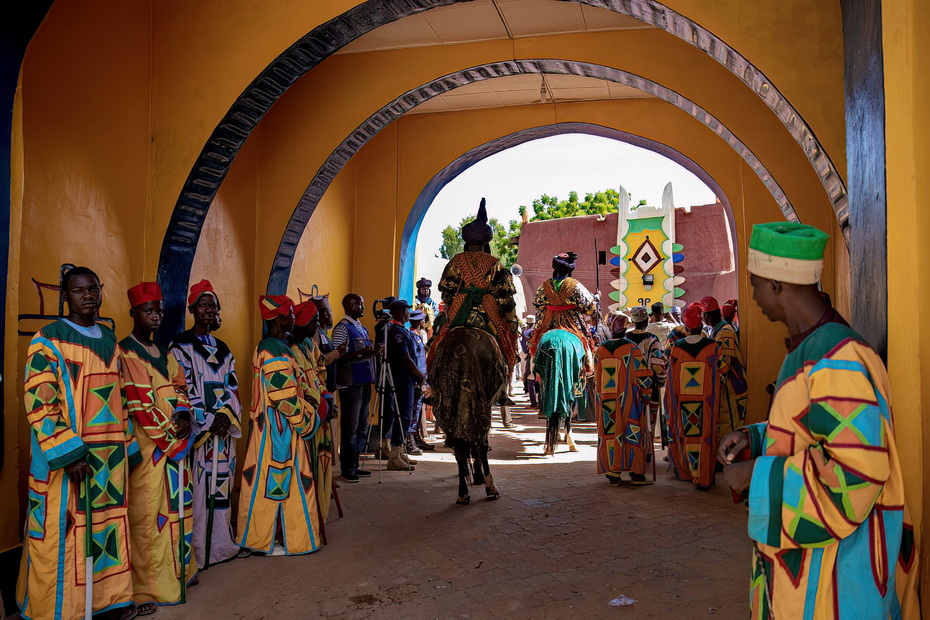
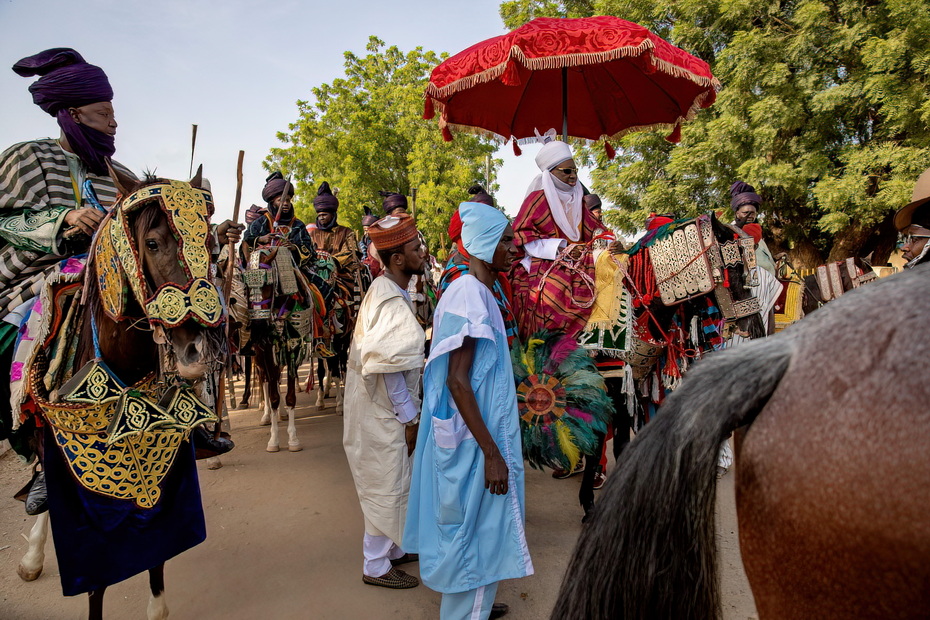




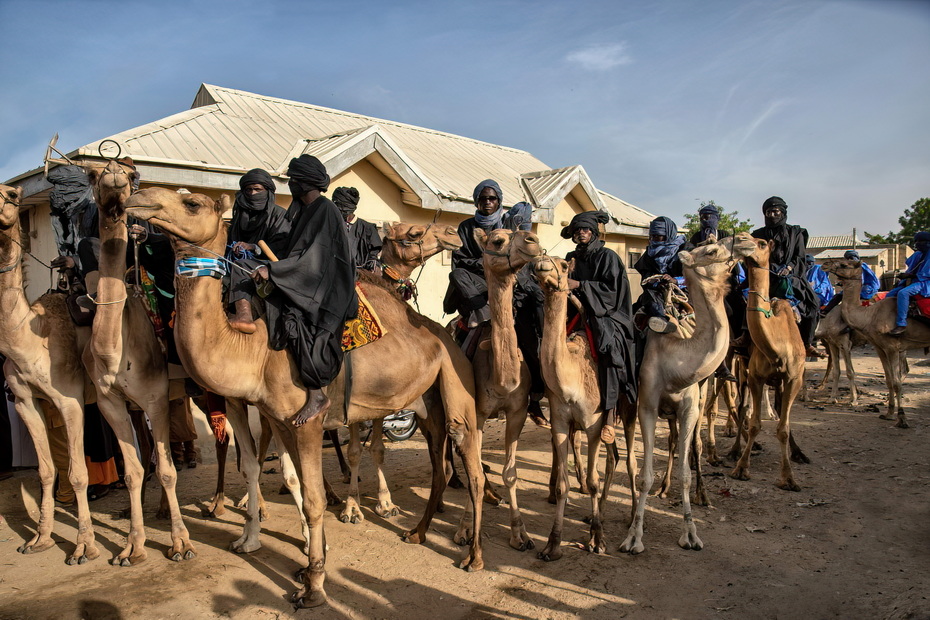


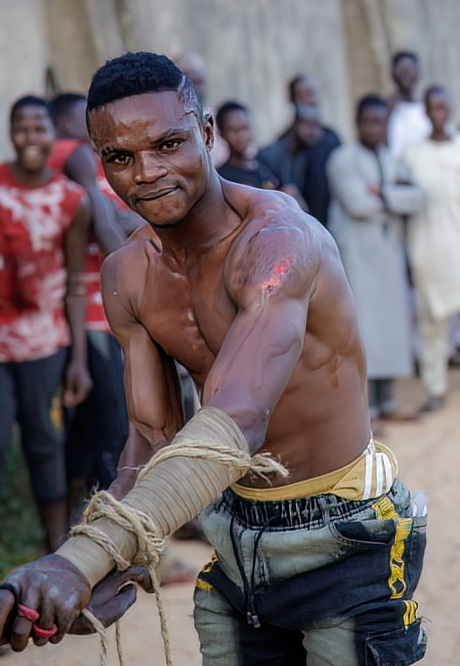
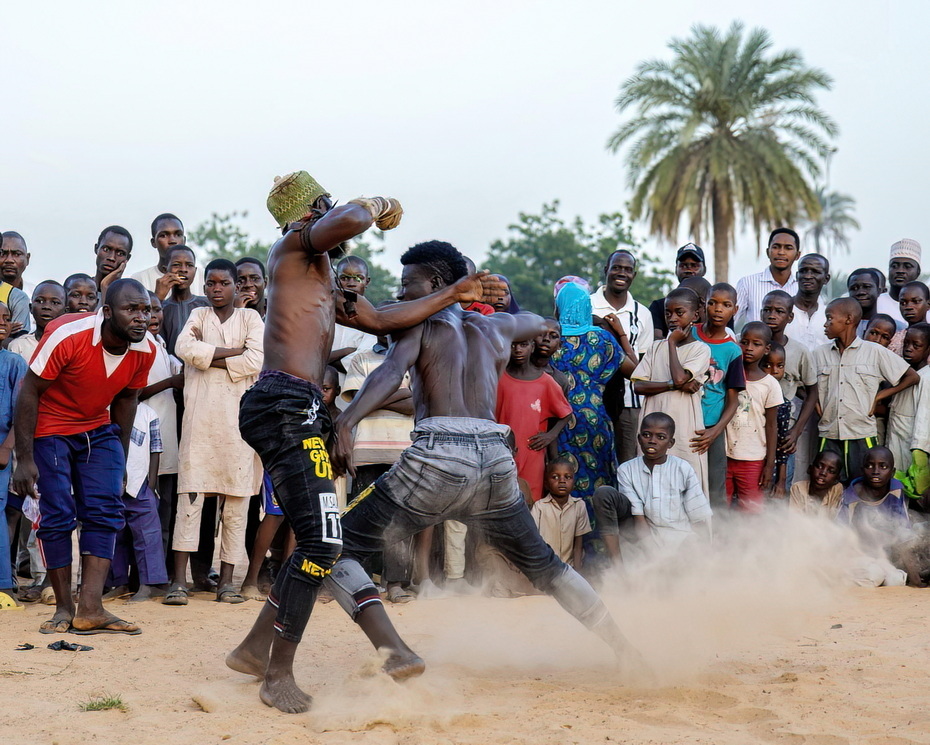
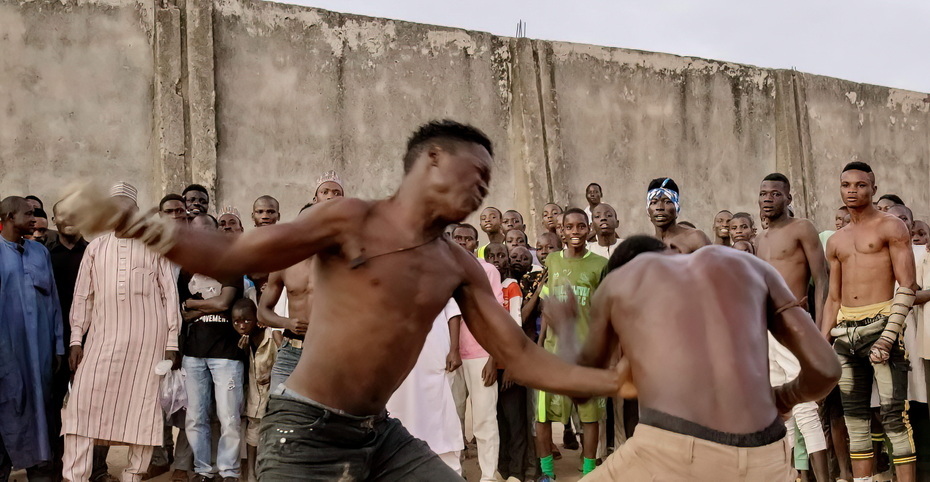
Photo © Jordi Zaragozà Anglès